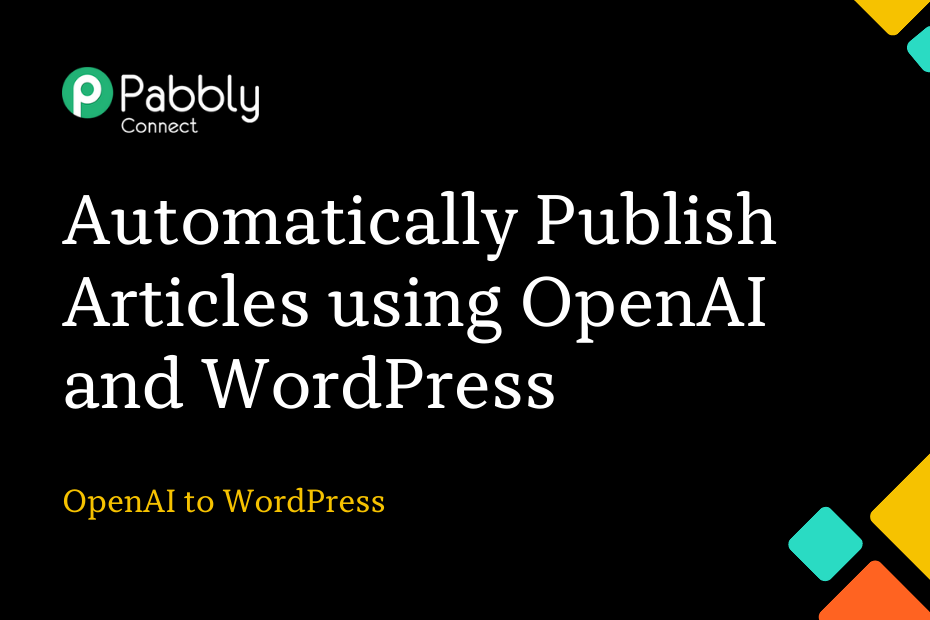Let us look at how you can integrate Google Sheets with OpenAI and WordPress. Following this integration, you will be able to automatically generate articles using Google Sheets and OpenAI and publish those articles via WordPress.
This automation requires a one-time setup, for which we will use Pabbly Connect.
We will first link Google Sheets with Pabbly Connect to capture the topic for your article, then link Pabbly Connect with OpenAI to generate articles, and lastly, link Pabbly Connect with WordPress to publish the article generated.
Steps to Automatically Publish Articles using OpenAI and WordPress
1. Sign In / Sign Up to Pabbly Connect and Create a Workflow
2. Establish a Connection between Google Sheets and Pabbly Connect
3. Setup OpenAI as the Action App to Generate Articles
4. Setup WordPress as the Action App to Post Articles
Step 1:- Sign In / Sign Up to Pabbly Connect and Create a Workflow
A. Sign In / Sign Up
To begin this process, visit Pabbly Connect and create your account by clicking on the ‘Sign Up Free’ button. You can also click on Sign In if you already have an account.
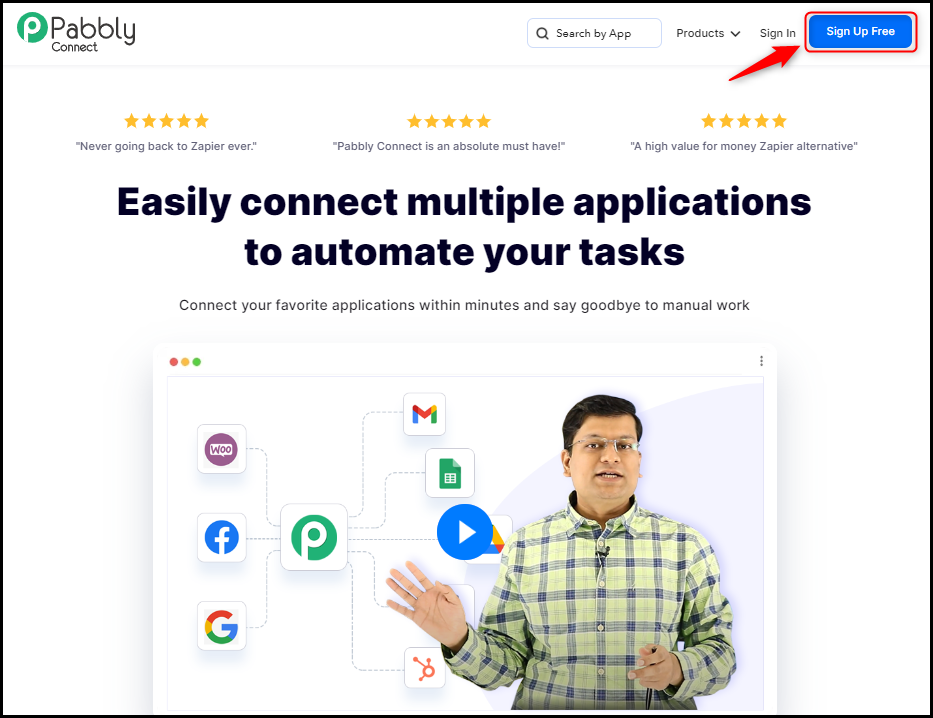
Click on the Pabbly Connect ‘Access Now’ button
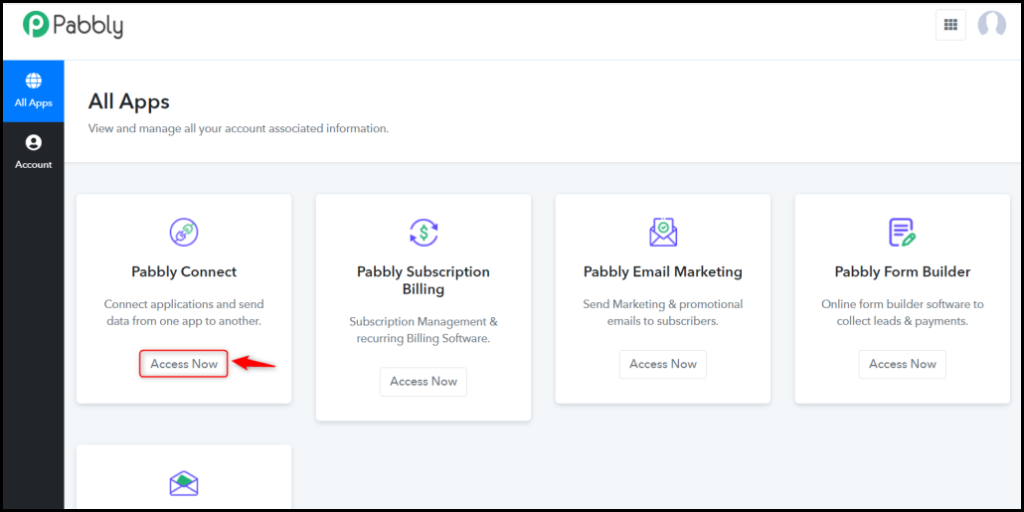
B. Create Workflow
To create a new workflow, click the ‘Create Workflow’ button.
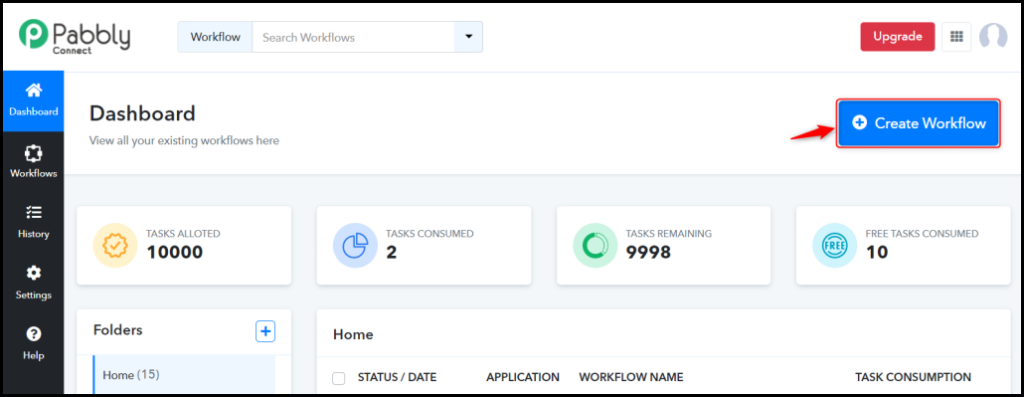
Name your workflow, and click on ‘Create’.
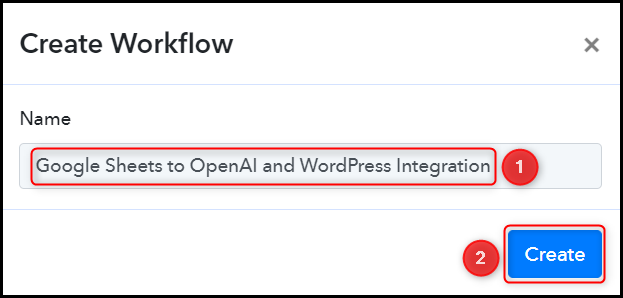
Step 2:- Establish a Connection between Google Sheets and Pabbly Connect
We will now look at the steps through which we will establish a link between Google Sheets and Pabbly Connect. This will help us to fetch the data from Google Sheets.
A. Trigger App
Trigger allows us to choose the application that will receive the data for Pabbly Connect. In our case, it would be Google Sheets.
Choose ‘Google Sheets’ as the Trigger App and select ‘New or Updated Spreadsheet Row’ as a Trigger Event.

B. Webhook URL
A new Webhook URL will get generated. You will use this Webhook URL to create a connection with your Google Sheets account. Copy the Webhook URL.

As soon as you Copy the Webhook URL, Pabbly Connect will start looking to capture data from Google Sheets, as indicated by the rotating Waiting For Webhook Response button.

C. Connect Google Sheets Account
To connect with your Google Sheets account, open the sheet where you want to enter the data, click on Extensions > Add-ons > Get add-ons, and search for ‘Pabbly Connect Webhook’.

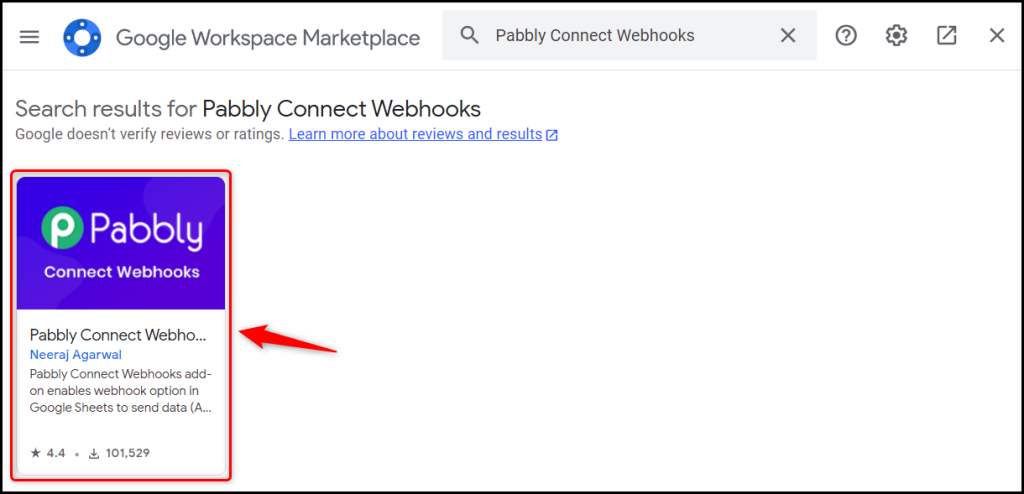
Install the Pabbly Connect Webhook extension.
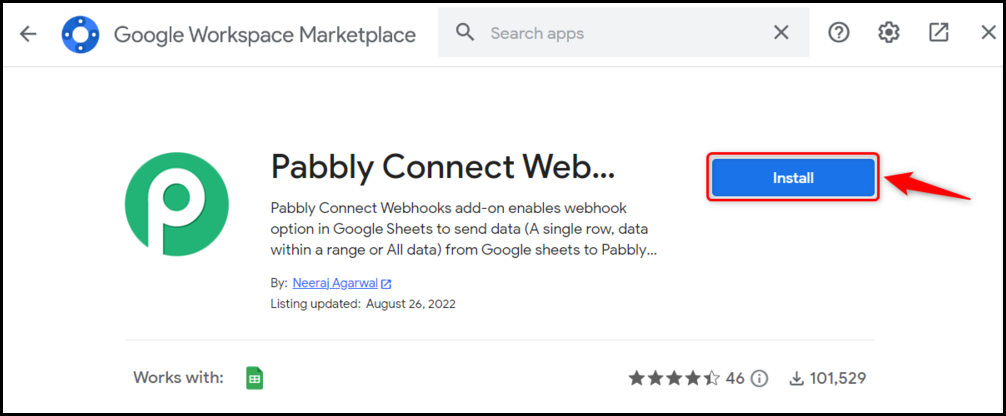
After installing the add-on, again click on Extension > Pabbly Connect Webhooks > Initial Setup.
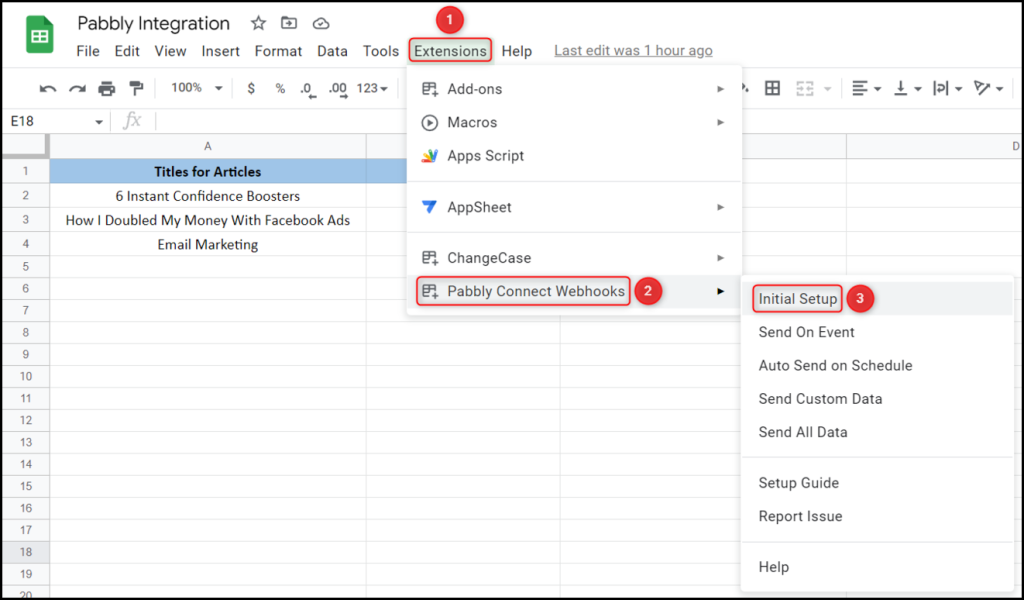
Paste the Webhook URL that we copied earlier, and in the Trigger Column, mention the name of the last column in which the data is available, and click on ‘Send Test’.
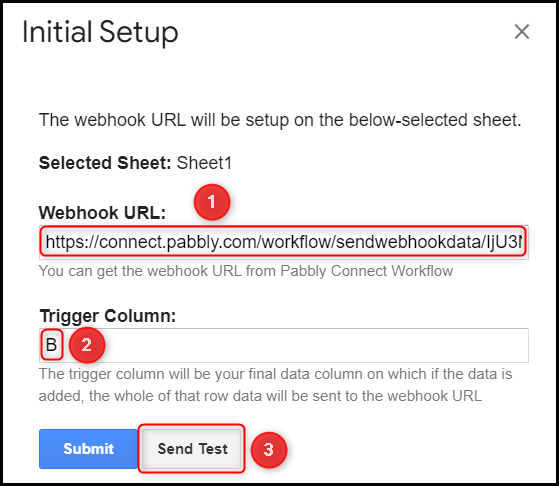
Now that the data is sent successfully – click on ‘Submit’.
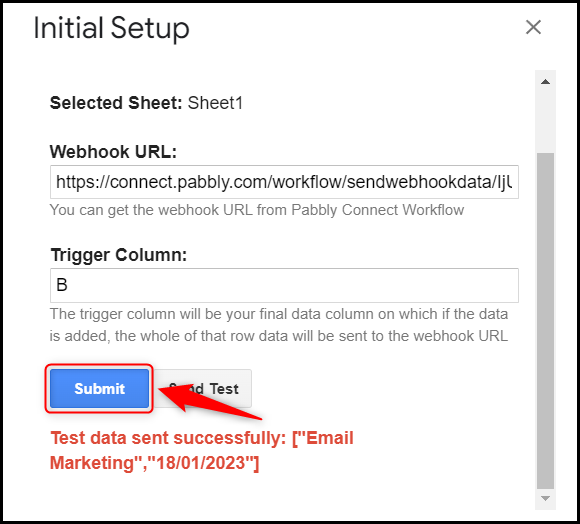
Switch back to Pabbly Connect, expand Response Received, and the data you entered must be visible, thus confirming our established connection.
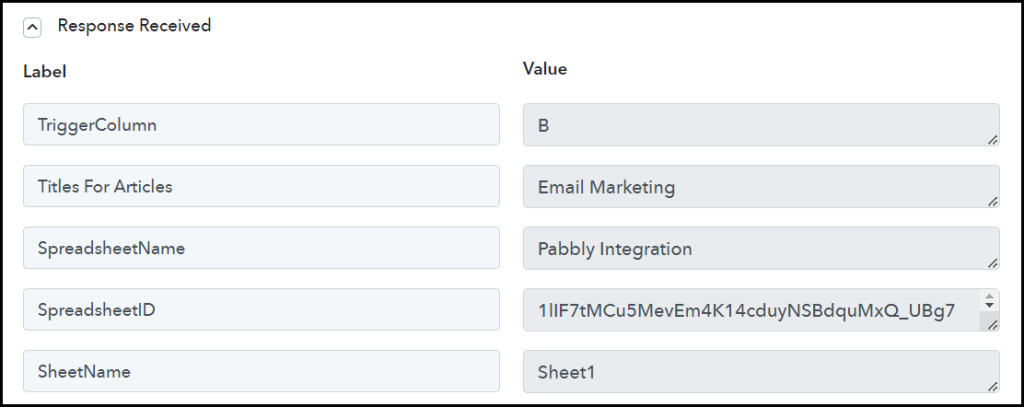
Step 3:- Setup OpenAI as the Action App to Generate Articles
Action allows us to choose the application that will get executed by the workflow trigger.
Since we want to generate articles on the captured topics using OpenAI – it will be our Action App.
A. Action App
Choose ‘OpenAI’ as the Action App, select ‘Generate Content’ as an Action Event, and click on ‘Connect’.
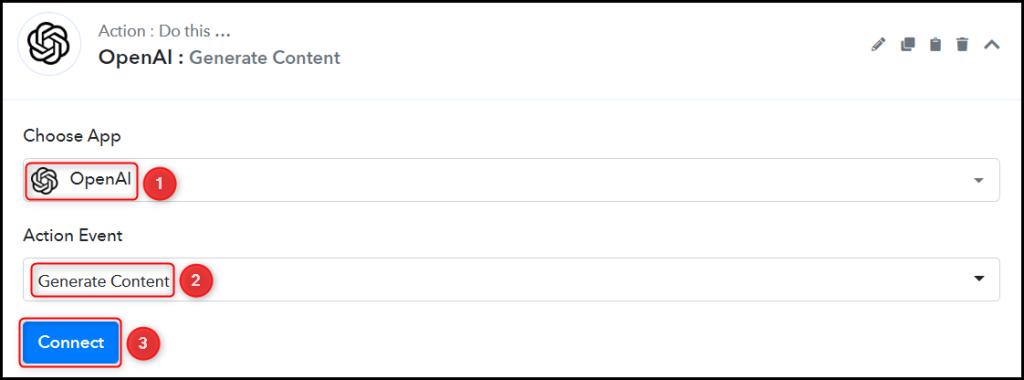
B. Connect OpenAI Account
To connect with your OpenAI account, select ‘Add New Connection’. You will be prompted to enter your API Token. Find your API Token by clicking on the ‘OpenAI API Keys page’ button.
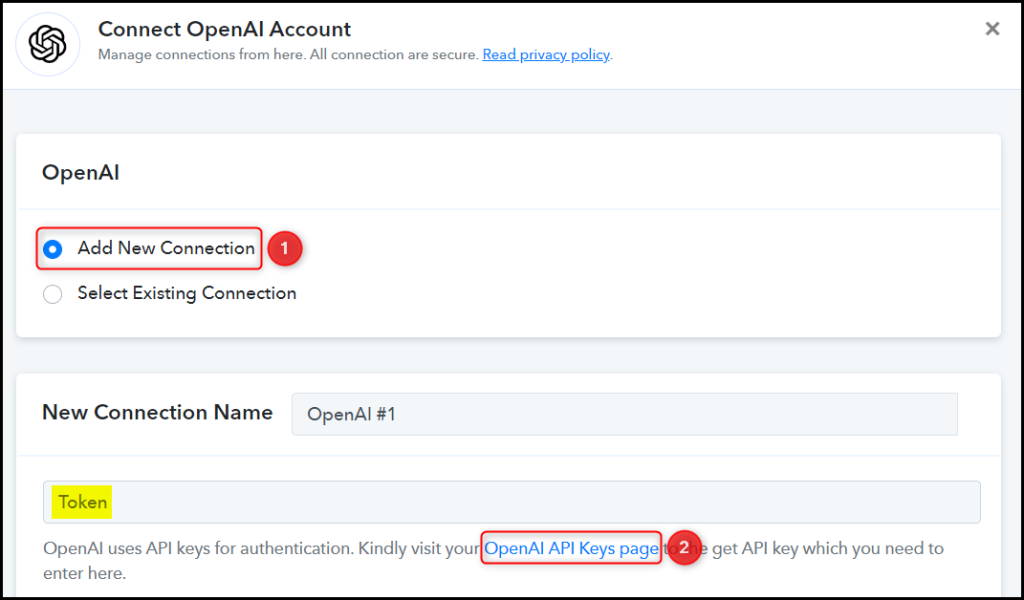
Generate and copy your API Token, paste it into its given field, and click on ‘Save & Send Test Request’.
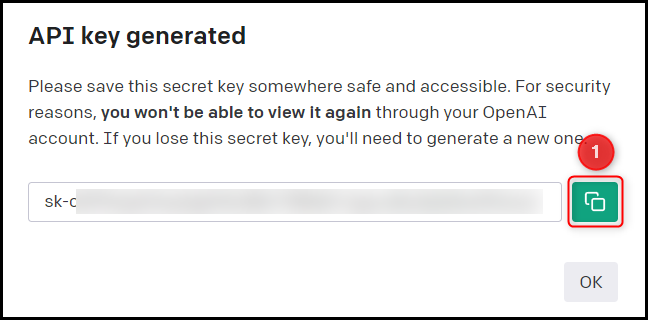
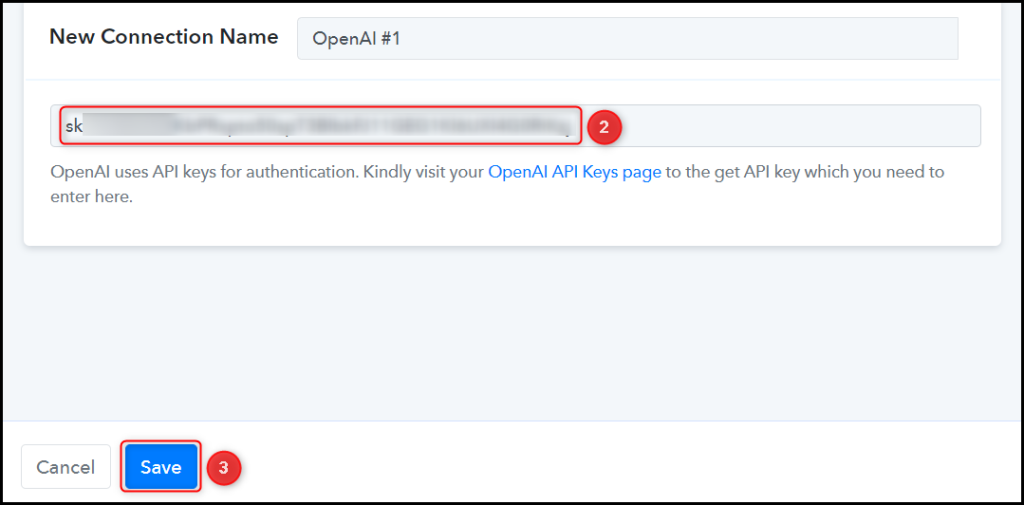
Select the AI Model you want to use for generating the article.

C. Enter / Map the Necessary Fields
Now that you have connected your OpenAI account, all you need is to map the necessary details from the step above. Mapping ensures our data remains dynamic and changes as per the received responses.
Compose a Prompt by mapping the details from the step above.
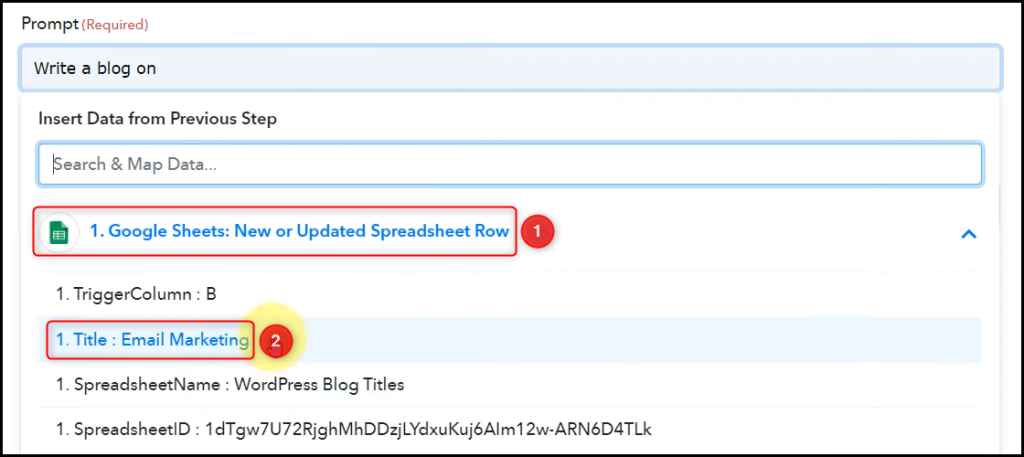

Similarly, select/enter other fields, leaving the unnecessary ones empty, and click on ‘Save & Send Test Request’.

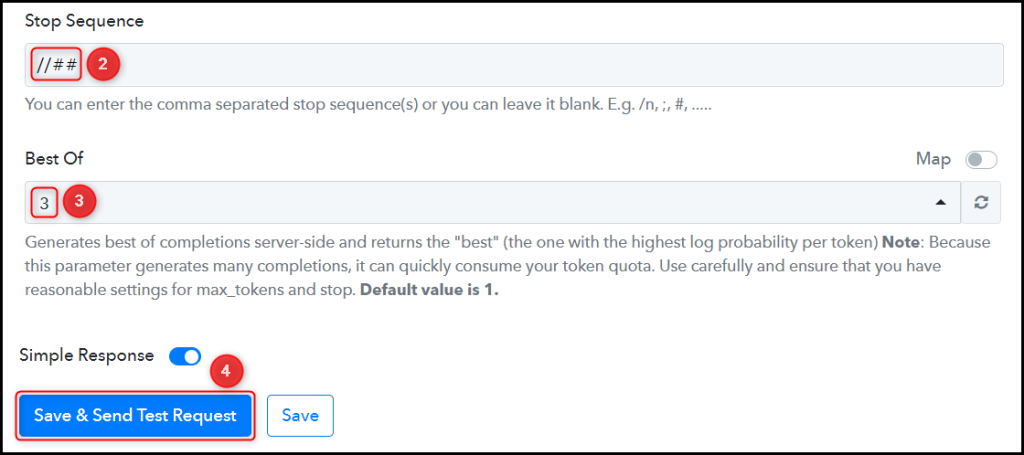
As soon as you click on Save & Send Test Request, an article will automatically be generated using OpenAI.
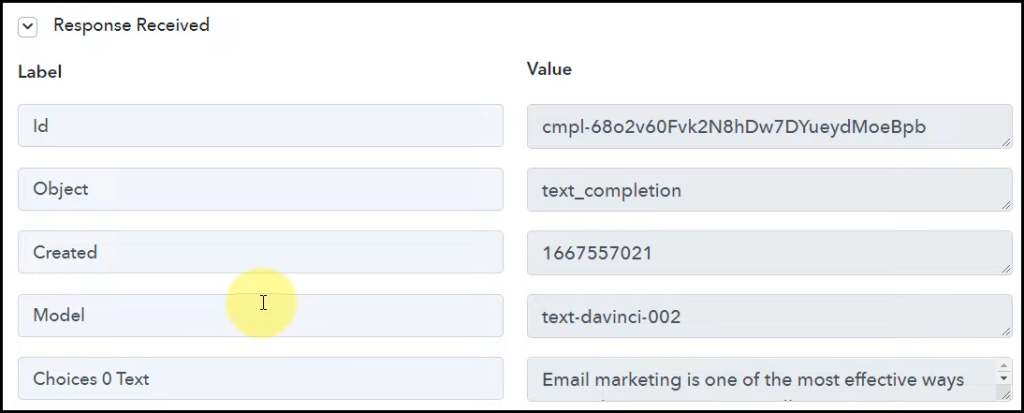
Step 4:- Setup WordPress as the Action App to Post Articles
Action allows us to choose the application that will get executed by the workflow trigger.
We essentially want to post the generated article on WordPress – thus, WordPress will be our Action App.
Add another Action step to your workflow by clicking the ‘+’ button.

A. Action App
Choose ‘WordPress’ as your Action App, select ‘Create a Post’ as an Action Event, and click on ‘Connect’.
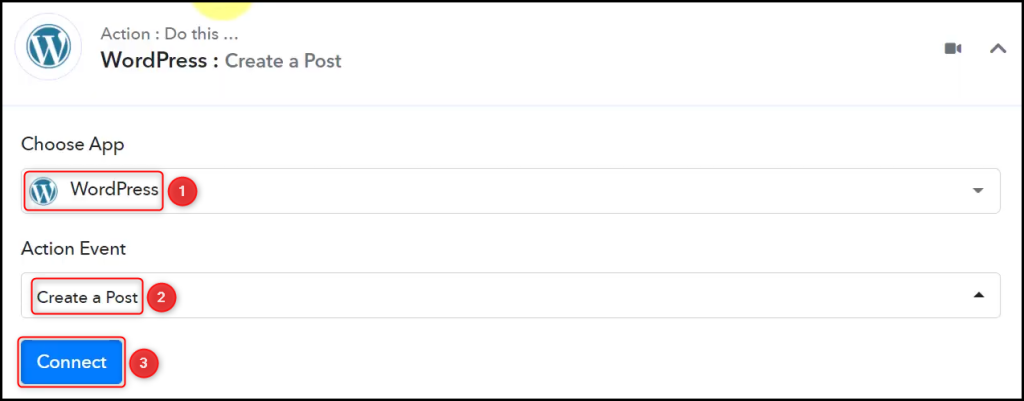
B. Connect WordPress Account
To connect with your WordPress account, select ‘Add New Connection’ and enter your WordPress Username and WordPress Password.
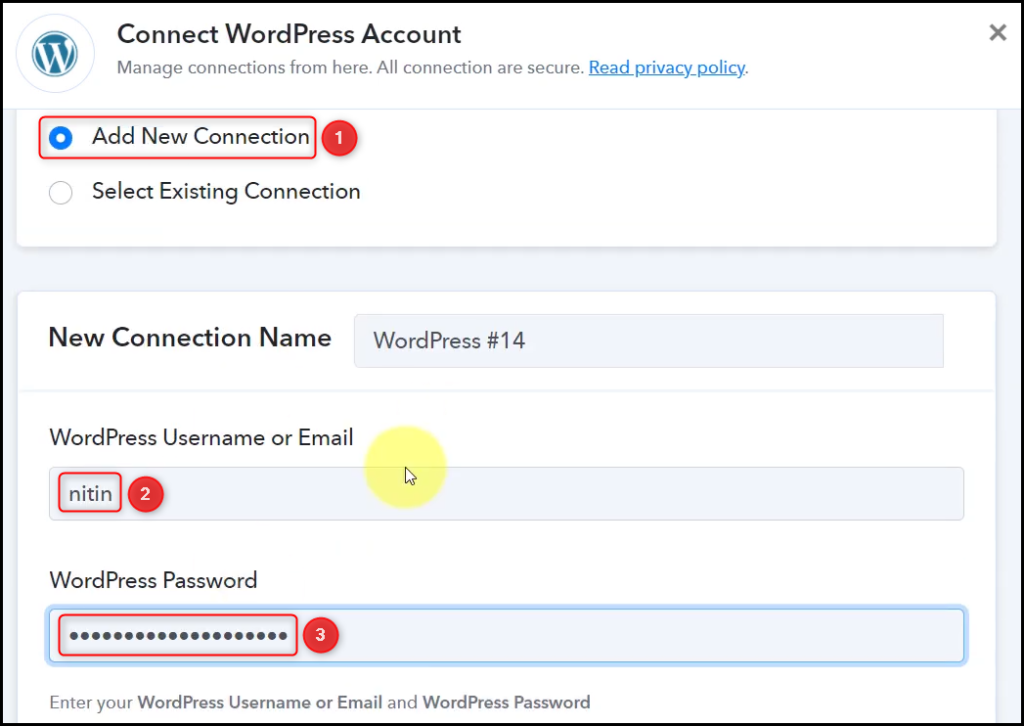
Copy the Base URL from your WordPress dashboard, paste it into its given field, and click on ‘Save & Send Test Request’.

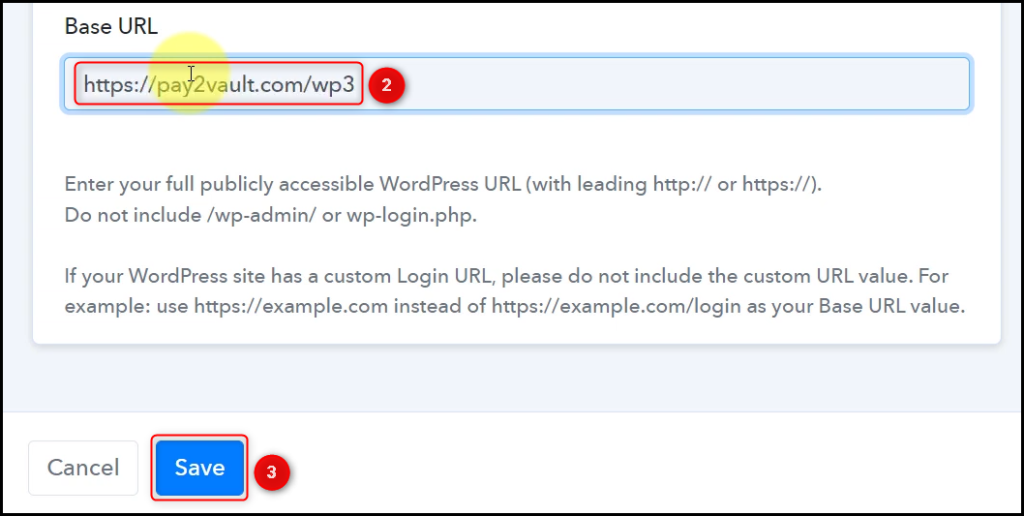
Select your Post Type.

C. Map Necessary Fields
Now that you have connected your WordPress account, all you need is to map the necessary details from the step above. Mapping ensures our data remains dynamic and changes as per the received responses.
Map the Post Title from the step above.
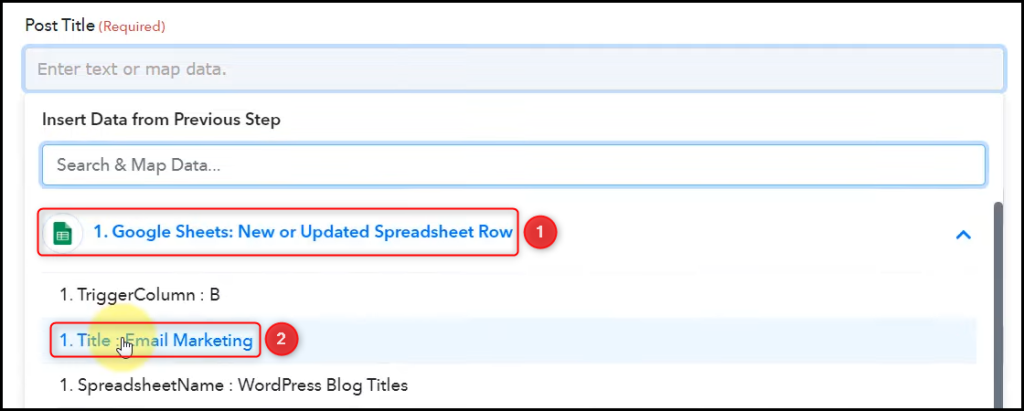

Similarly, map the other fields, leaving the unnecessary ones empty, and click on ‘Save & Send Test Request’.


The moment you click on Save & Send Test Request, the post will be shared on your WordPress account.
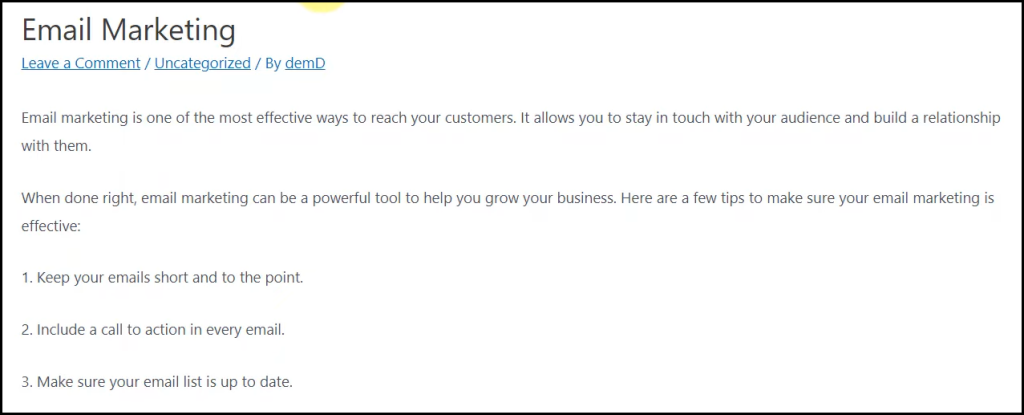
Our automation is complete. We have successfully integrated Google Sheets with OpenAI and WordPress. Now, each time you enter a new topic in your Google Sheets spreadsheet, an article on the same topic will be generated using OpenAI and automatically published via WordPress.
You can copy this entire workflow by clicking this link.
Sign Up for a free Pabbly Connect account, and start automating your business
Subscribe to our Youtube Channel for more such automation
For any other queries, visit our forum
